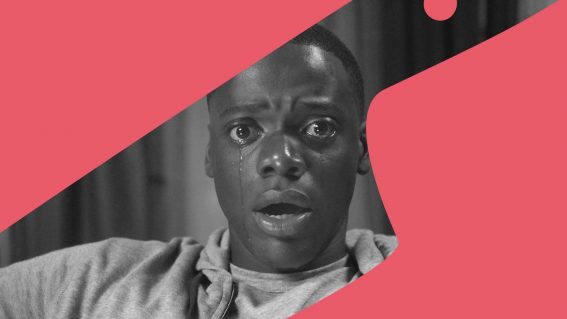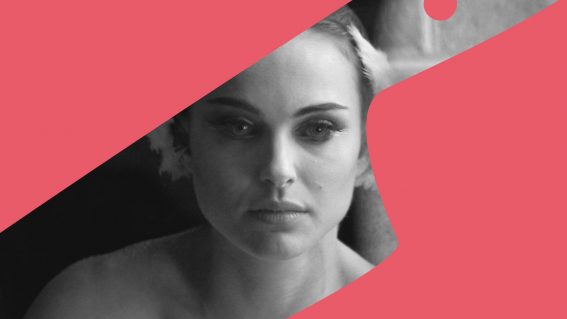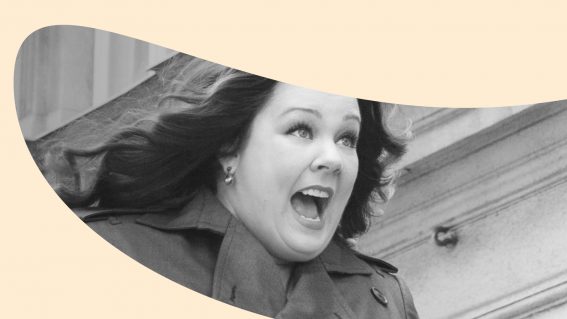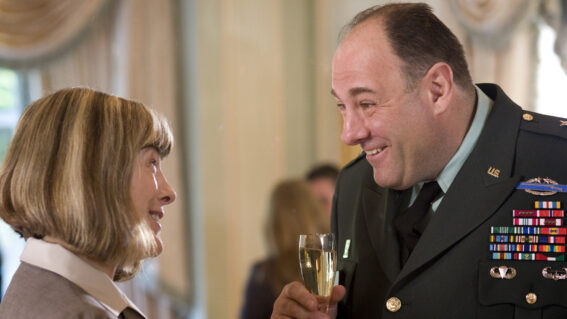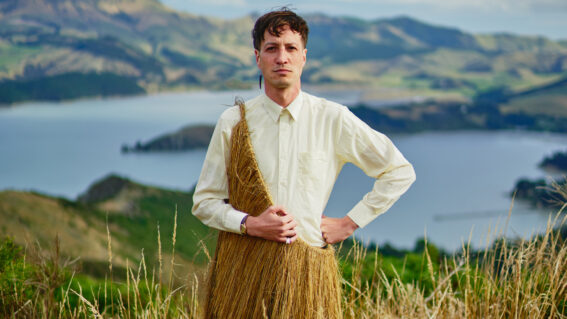We’re lucky to have What We Do in the Shadows, one of the funniest shows on TV
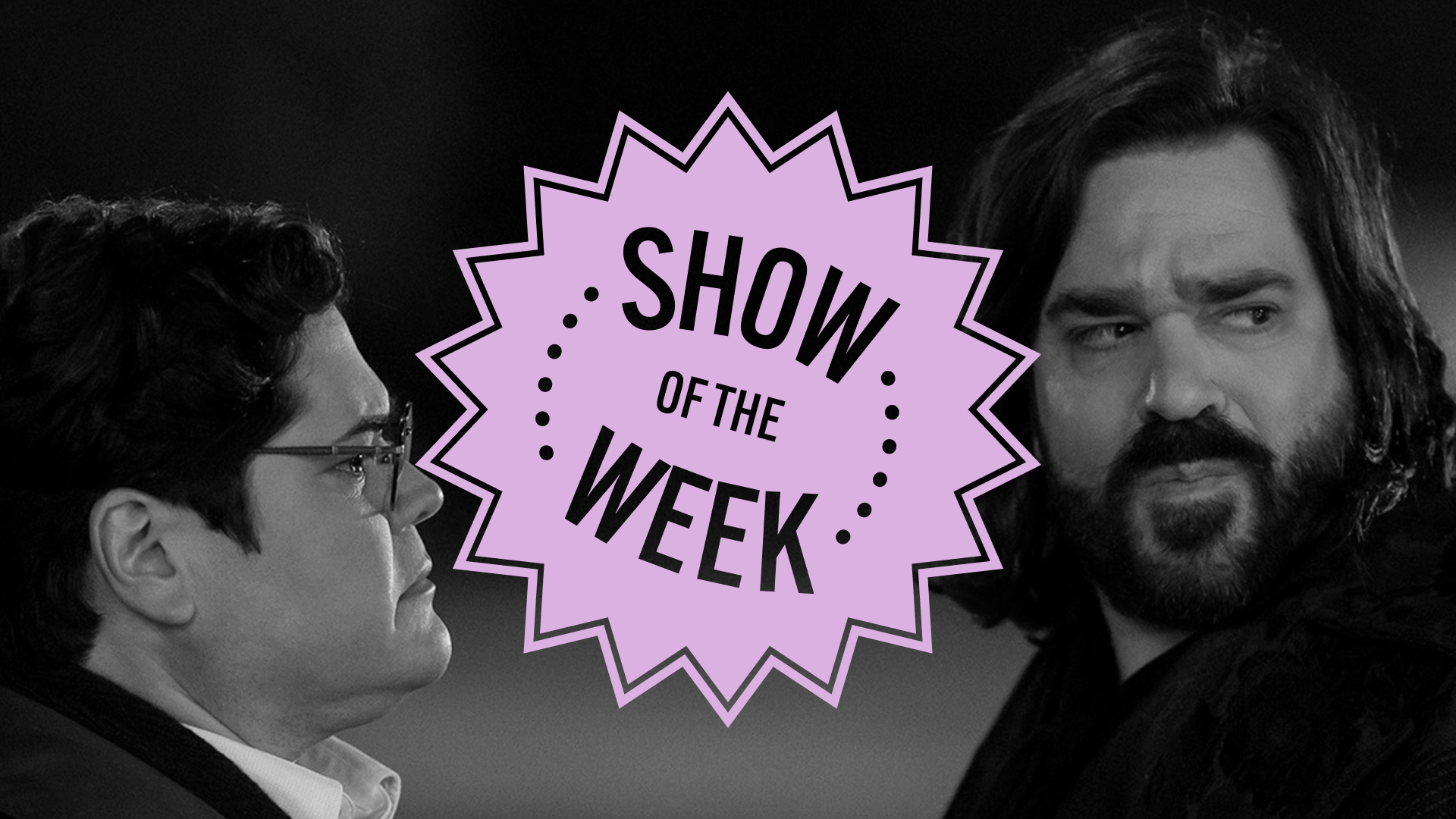
We’re all drowning in content—so it’s time to highlight the best. In her column, published every Friday, critic Clarisse Loughrey recommends a new show to watch. This week: The non-sucky fifth season of vampire comedy What We Do in the Shadows.
“Nothing ever changes in this house. Nothing is ever going to change,” complained Guillermo (Harvey Guillén), What We Do in the Shadows’s most downtrodden character, in season four’s finale. He’s right. But, really, could it ever be any other way? There’s a weird sort of tension inside of every long-running sitcom: stick to the same, and the dynamic grows stale. Switch it up, and you risk knocking the entire thing off balance.
Take Guillermo, the human familiar to vampiric warlord Nandor (Kayvan Novak), who lives in Staten Island in an undead house share with sybaritic husband-and-wife Laslzo (Matt Berry) and Nadja (Natasia Demetriou) and energy vampire Colin Robinson (Mark Proksch). More than a decade has passed in their world, and four seasons in ours, and Nandor is yet to fulfil his promise to turn Guillermo into a vampire, in exchange for his years of servitude.
Guillermo has been our entry point into this secretive, illogical, blood-guzzling society, and the show’s mockumentary format has often relied on Guillén’s impeccable timing and his Jim Halpert-style looks to camera. But there’s only so long that we, as an audience, can suspend our disbelief that this guy can simply keep cleaning up bodies and blood spills and expect nothing in return. So, at the end of last season, Guillermo declared that, “nothing is ever going to change, unless I change it”, and convinced his vampire buddy Derek (Chris Sandiford) to turn him instead.
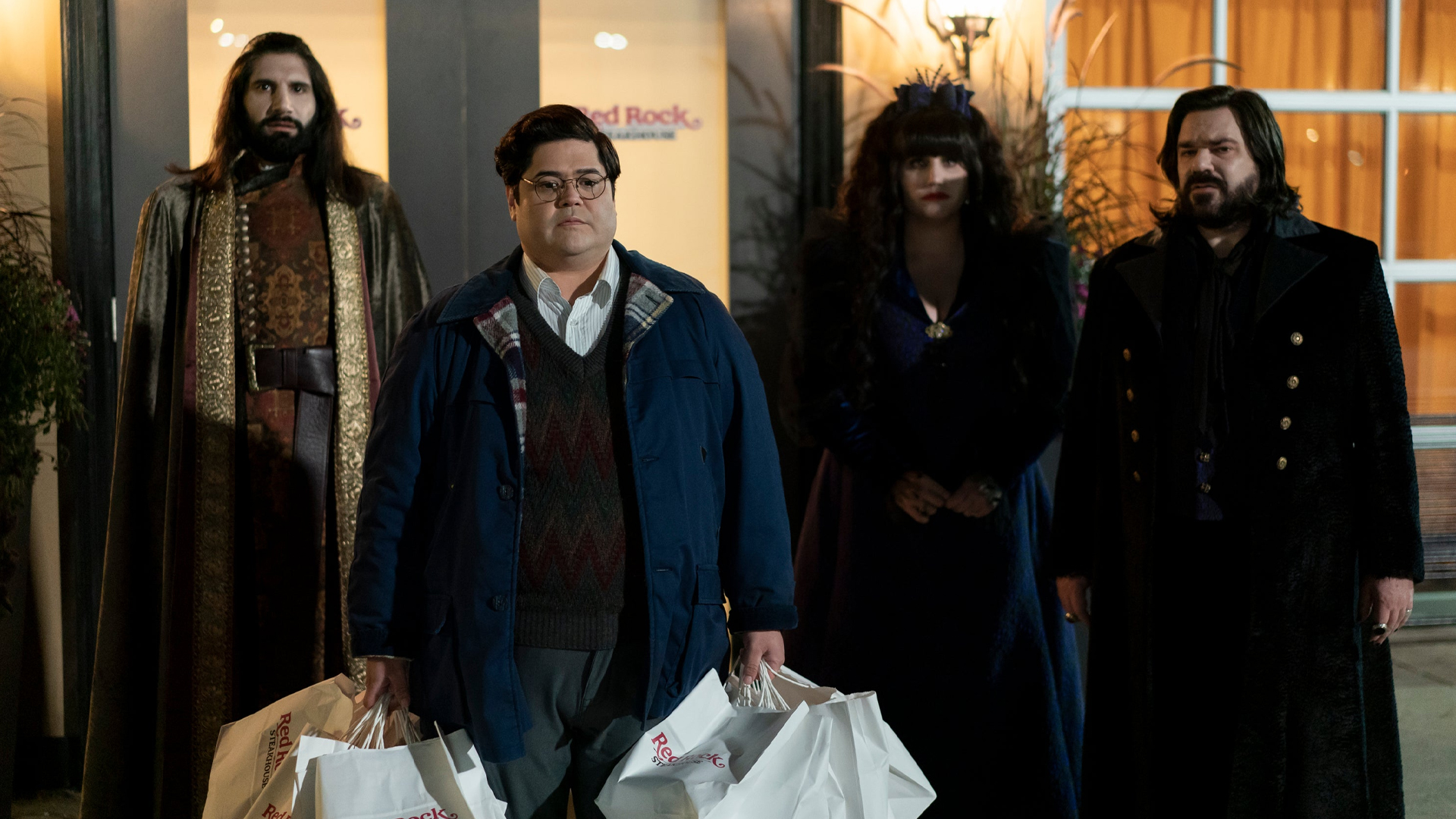
In season five, we get to watch Guillermo rather haplessly attempt to keep his new secret from the rest of the crew. But if Guillermo is a vampire now, will that shift the relationships we’ve grown so fond of? Can the show be as funny without an everyman to balance out the absurdity? Can What We Do in the Shadows really survive this change?
Obviously, I won’t spoil what happens here, since the season has only just landed on Disney+ in the UK. And I won’t reiterate what’s already obvious—that What We Do in the Shadows is one of the funniest shows on television at the moment, and we’re lucky to have it. Admittedly, some of the conceits here aren’t as strong as they’ve been in past seasons, but the cast are now so comfortable in their roles that they can spin gold out of even the weakest of set-ups. Berry’s vocal flourishes are better than ever, and Demetriou, in one episode, gets to roll around in gigantic bloomers.
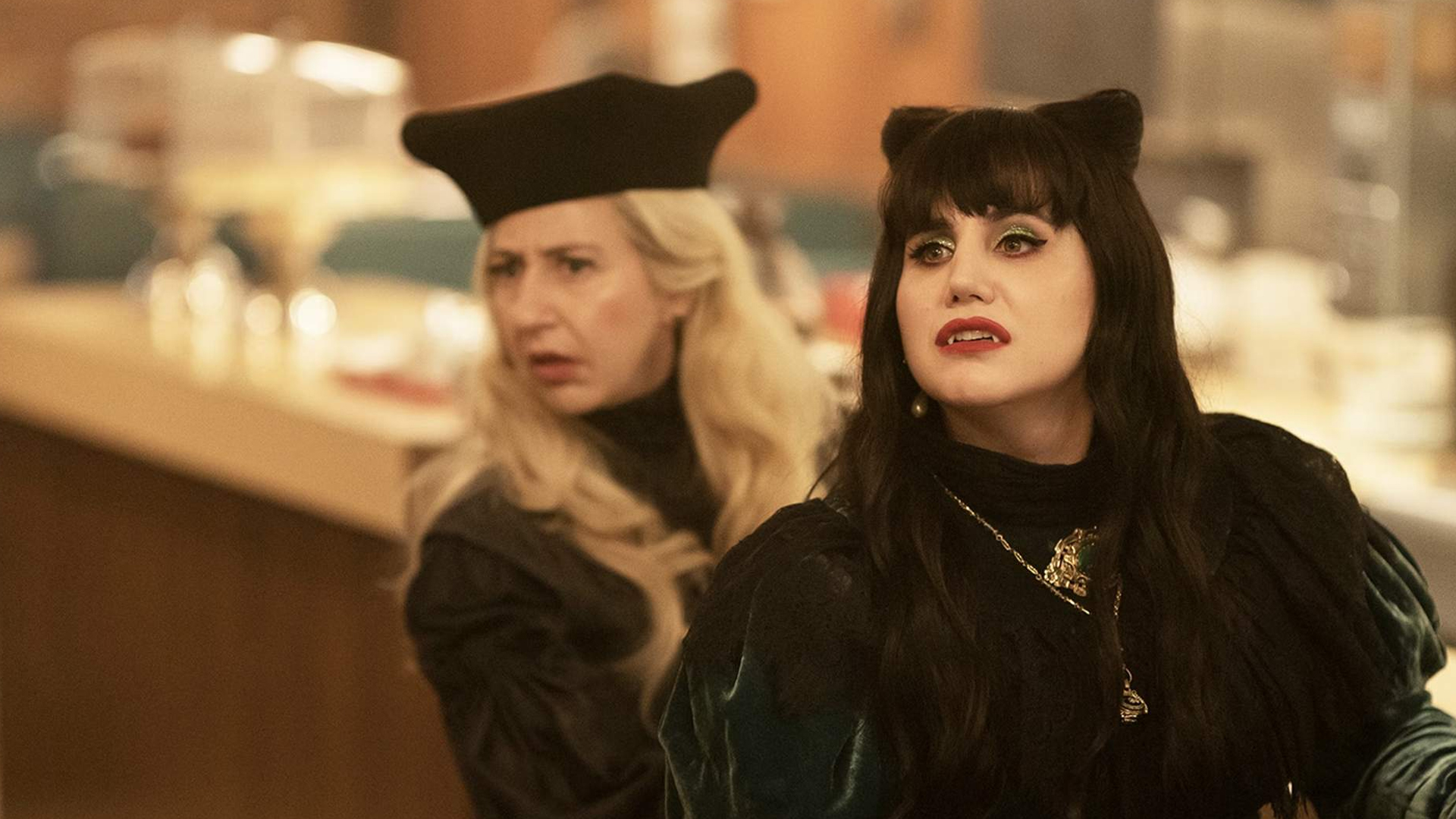
But, what feels truly striking about season five is that the show seems to have gained some new clarity about its own future. A secondary, multi-episode arc centres around Kristen Schaal’s The Guide, a character who was introduced back in season one as part of the vampiric council, but who’s since drifted closer to the main group, becoming a co-partner of sorts in Nadja’s nightclub venture. Yet, she’s not really slotted as comfortably into the central quartet’s combative dynamic, and so the writers have actually leaned into that fact by focusing her storyline on her inability to permeate the clique. Nadja will sit right next to her and bemoan that she has “no close female friends”.
What We Do in the Shadows features a few other, more minor iterations of this conflict throughout the season, as the vamps repeatedly seek friendship beyond their own walls. Nandor tries to pick up a buddy at the local gym, while Colin gets into local politics (now that he’s back in full, adult form, Proksch gets to really run riot with the mundanity). Nadja reconnects with her homeland, Antipaxos, by seeking out the local emigrant community. Laszlo helps next-door neighbour Sean (Anthony Atamanuik) with launching a pride parade (a nice reminder that the show remains jubilantly queer).
But a lot of What We Do in the Shadows’s comedy leaves a rather bittersweet aftertaste. These vampires can be cruel to each other, but the world is even crueller to them. And they will always find their way back to each other, so that the cycle can reset, and we can always feel safe in the sitcom regularity of the perpetual found family. As a returning Baron Afanas (Doug Jones, always delightful) notes: “It can be lonely, this American dream”. There can be no greater comfort than knowing there’ll always be a home in a show like What We Do in the Shadows.






